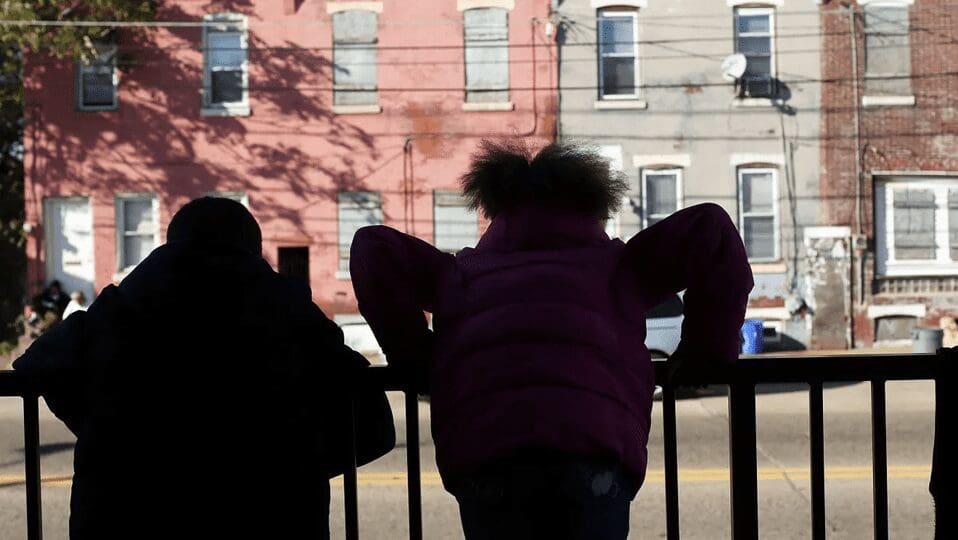The American Rescue Plan has been hailed as a historic effort that will cut poverty by a third and child poverty by half. Congress can keep it going.
By: Deepak Bhargava and Dorian Warren
It took 20 years for the United States to finally wield the sharpest tool in its arsenal to cut child and family poverty.
This summer, families with children 17 and younger will receive checks of up to $3,600 per child, on top of their one-time $1,400 stimulus checks, thanks to the expansion of the child tax credit in the American Rescue Plan.
The plan has been hailed as a historic effort that will cut poverty by a third and child poverty by nearly half. The expansion of the child tax credit, which made it fully refundable, is the reason why.
With the average cost of housing, feeding and clothing a child at more than $1,000 a month, the expansion of the child tax credit could pay as much as two-thirds of the yearly costs of raising a child.
The work now is to ensure that Congress makes this poverty-busting tool permanent beyond a one-time infusion.
Our hope is that elected leaders won’t take another 20 years to make it so, because we’ve seen how the slow arc of progress in little understood policies has huge ramifications for American families.
Two decades ago, our organization, Community Change, along with the Children’s Defense Fund and other groups, led a campaign to increase the refund amount from the child tax credit for individuals who qualify, regardless of whether they worked. We lobbied the Democratic-controlled Senate.
From Maine to Montana, grassroots groups led by low-income mothers and part of the National Campaign for Jobs and Income Support supported by Community Change called their members of Congress daily and visited their offices, and even their homes.
Our pressure and the voices of the women who were most impacted succeeded in expanding the child tax credit; the final legislation delivered $8 billion to low-income families per year.
But it was a partial victory. We did not succeed in eliminating the work and income requirements for individuals to qualify, and we did not win in making the credit fully refundable, which would give filers refunds even if the amount is more than what they owe in taxes.
Left opposed expansion 20 years ago
The reason for the partial victory in 2001 was a surprising one — opposition from liberals.
Then-President George W. Bush, a Republican, wanted to expand the size of the credit, but under his proposal low-income people who paid no federal income taxes would not benefit.
It was a time in the aftermath of President Bill Clinton’s 1996 welfare reform, which gutted many of the resources that low-income families relied on to survive. We expected the Republican opposition to our full demands, but liberals offered some of the harshest criticism, parroting many of the same racist and sexist tropes as their colleagues across the aisle who called our demands fringe.
It took 20 years of organizing, but the fringe is now mainstream.
The child tax credit delivers significant financial support to families who have struggled during the pandemic and are simply trying to make it in this economy.
Because, unlike years past when only individuals who worked and earned a minimum amount were eligible, this year’s rescue plan delinks the work requirements. Even those not working can earn the refund for children they are raising who are younger than 17.
Monthly checks give stability
Families also normally receive the refund the following year, but under the rescue plan families will start receiving it this year, as early as this summer.
The Treasury and Internal Revenue Service recently decided to pay families monthly, instead of one lump sum, which will provide parents with more stability knowing when cash is coming for diapers, rent and other basics.
Our job now as organizers is twofold. First, we have to make sure that the 10 million low-income people who are eligible but don’t file taxes claim their benefits.
Second, we fight again to make the expansion of the child tax credit and its sister, the earned income tax credit (which was expanded to up to $1,500 for adults not raising children at home), permanent fixtures to help people living on the brink.
_____________________________________________________
About the Author: Deepak Bhargava, former president of Community Change, is a policy expert on poverty and co-editor of a new book, “Immigration Matters.” Dorian Warren, co-president of Community Change, is one of the country’s leading advocates of guaranteed income policies.




















